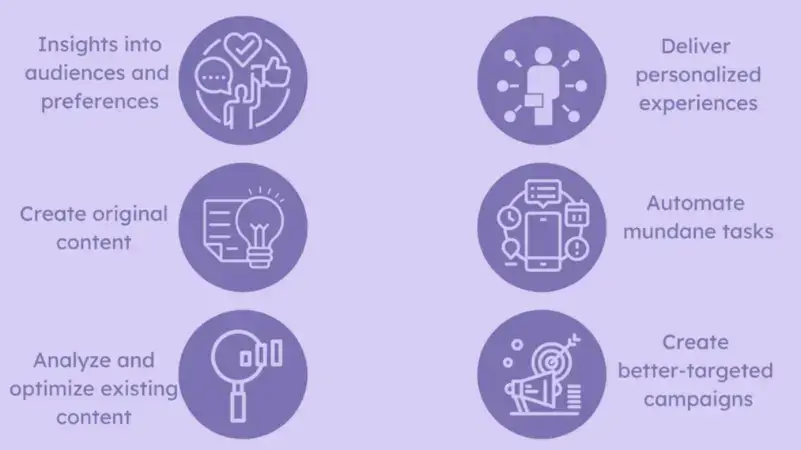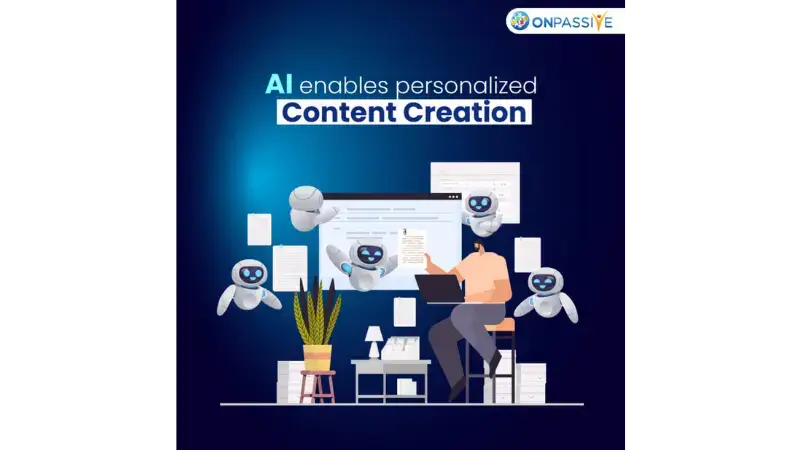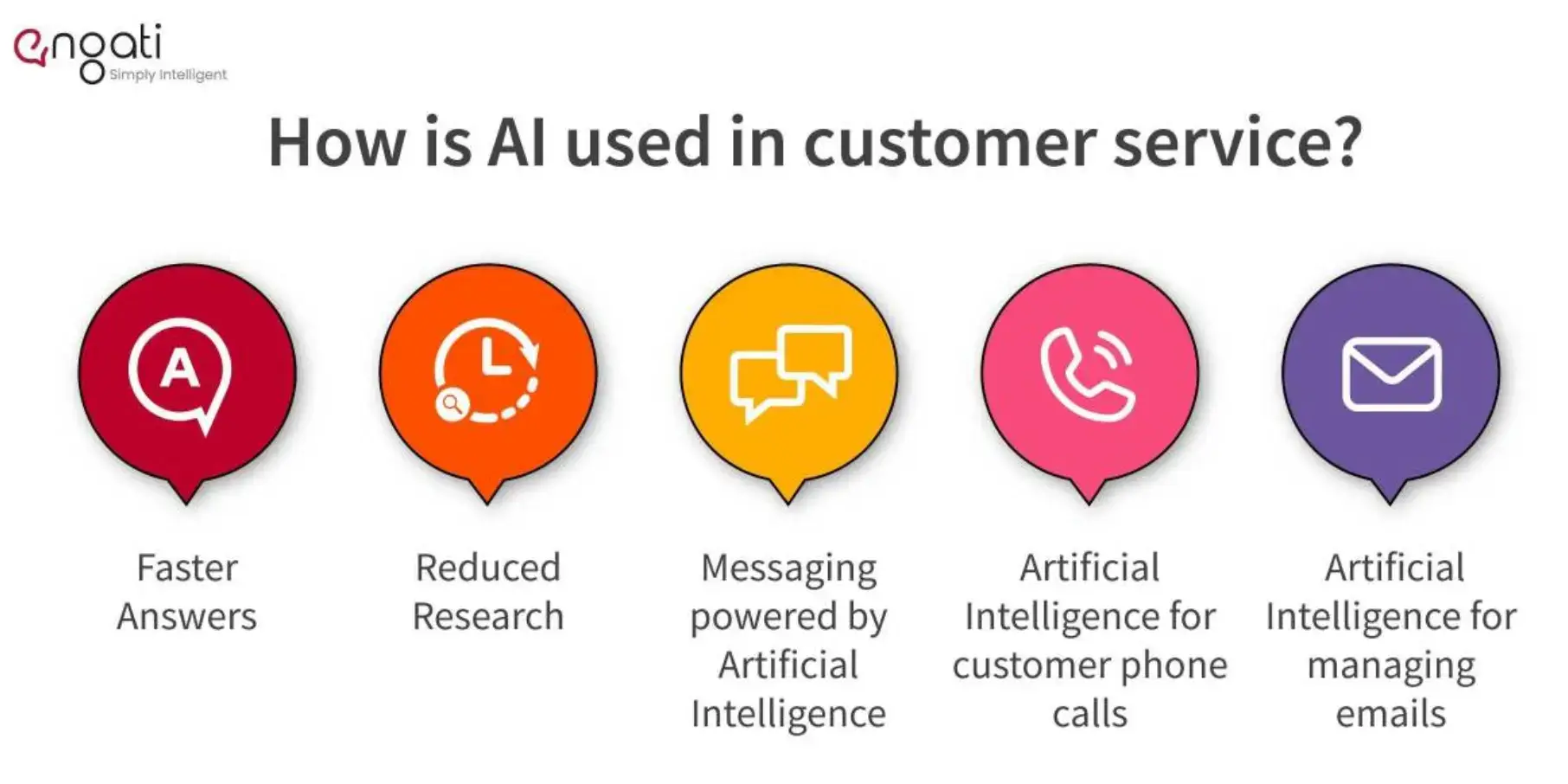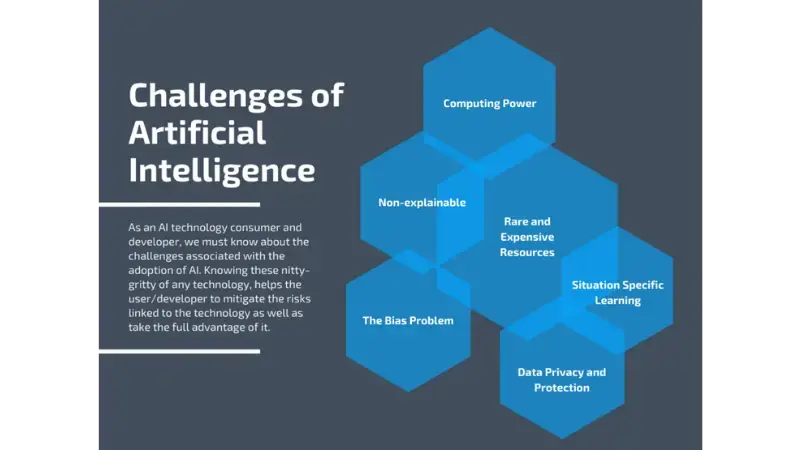Social media has become an integral part of our daily lives, transforming how we communicate, share information, and connect with others.
Concurrently, artificial intelligence (AI) has been advancing at an astonishing pace, revolutionizing various industries and sectors.
When these two powerful forces intersect, the result is a dynamic landscape that brings immense opportunities and daunting challenges.
The market for AI in social media should surpass $3.7 billion by 2026, projected to be USD 5.66 Billion by 2028, achieving a CAGR of 28.77%, along with the growth in social media users and the increasing demand for AI solutions to understand client preferences.
In this blog, we delve into the intersection of social media and AI, uncovering the power it holds and the complex challenges it poses.
We explore how AI has infused social media platforms with remarkable capabilities, enhancing user experiences, enabling personalized content curation, and revolutionizing customer service.
Examples of this can be found in the best ChatGPT prompts for LinkedIn and other forms.
We also shed light on the challenges that arise when AI and social media converge, including privacy concerns, algorithmic bias, misinformation, and the ethical use of AI.
The Power of AI in Social Media

Artificial intelligence has infused social media platforms with powerful capabilities, enhancing user experiences and enabling new possibilities. Here are some key ways in which AI has exerted its influence:
1. Content curation: Personalized experiences
AI has revolutionized various aspects of content creation, empowering creators with innovative tools and streamlining the creative process.
Here are some ways in which AI helps in content creation:

- Content Generation: AI tools can generate content, such as articles, blog posts, and social media captions. AI models can generate coherent and contextually relevant text by analyzing vast amounts of data. It can be beneficial when there is a need for large volumes of content or when generating content in multiple languages.
- Automated Copywriting: AI-powered copywriting tools assist marketers and advertisers in creating compelling ad copies and marketing materials. These tools can analyze data, identify target audiences, and generate persuasive and engaging content tailored to specific customer segments.
- Content Editing and Enhancement: You can use AI to edit and enhance content by suggesting grammar, style, and structure improvements. AI-powered tools can detect errors, suggest alternative phrases, and even offer insights to make the content more engaging and impactful.
- Data-Driven Insights: AI algorithms can analyze large datasets to extract valuable insights. AI can identify trends, patterns, and audience preferences by processing and interpreting data. Leverage this information to create content that resonates with the target audience, leading to more effective communication and engagement.
- Visual Content Creation: You can use AI to create visual content, including images, videos, and graphics. For example, AI-powered image generation models can create realistic images from textual descriptions, enabling the quick creation of visual assets for marketing campaigns or website design.
- Personalization: AI enables content and product personalization by analyzing user data and preferences. By understanding individual interests and behaviors, AI algorithms can tailor content to specific users, providing a more personalized and engaging experience. This personalization can extend to recommending relevant articles, videos, or products based on user preferences and browsing history.
- Translation and Localization: AI-powered language translation tools have significantly advanced recently. These tools can accurately translate content from one language to another, aiding global content creation and reaching a wider audience. AI can also assist in localization by adapting content to specific cultural contexts and linguistic nuances.
- Content Planning and Strategy: AI analytics tools can help content creators make data-driven decisions when planning content strategies. By analyzing engagement metrics, social media trends, and user feedback, AI can provide insights on what types of content perform best, what topics are currently popular, and how to optimize content for maximum impact.
2. Sentiment analysis: Gauging public opinion
AI-powered sentiment analysis tools transform social media platforms to understand and interpret public sentiment.
By analyzing massive social media data, AI algorithms can detect emotions, opinions, and attitudes toward brands, products, and topics.
This capability enables businesses to gain valuable insights into customer perceptions, identify emerging trends, and make informed decisions.
Additionally, with AI-powered search, social media platforms can deliver more relevant content to users, enhancing their overall experience and engagement.
3. Customer service: Seamless interactions

AI chatbots are ubiquitous on social media platforms, providing instant customer service and support. These chatbots employ natural language processing algorithms to understand and respond to user queries.
By automating routine interactions, AI-powered chatbots offer quick resolutions, save time, and improve customer satisfaction.
They free up human resources, allowing companies to allocate their human support teams to more complex and specialized tasks.
4. Image and speech recognition: Visual and auditory understanding
AI has significantly advanced image and speech recognition, bringing new dimensions to social media content.
Image recognition technology enables social media platforms to automatically tag and categorize visual content, such as identifying faces, objects, or locations in photos.
Speech recognition algorithms, on the other hand, empower platforms to transcribe and analyze audio and video content accurately.
These capabilities enhance accessibility, improve searchability, and create new creative possibilities in social media content creation.
5. Targeted advertising: Reaching the right audience
AI is pivotal in targeted advertising on social media platforms and enhancing online shopping.
By leveraging user data and AI-driven algorithms, advertisers can precisely target their intended audiences based on demographics, interests, and behaviors.
This level of granularity ensures that advertisements reach the right people at the right time, maximizing the effectiveness of marketing campaigns.
AI-driven advertising platforms can also optimize ad delivery, automatically adjusting factors such as ad placements, budgets, and targeting parameters to achieve optimal results.
6. Trend identification: Capitalizing on emerging trends
In the vast sea of social media conversations and interactions, AI algorithms excel at identifying emerging trends and viral content.
It empowers brands, marketers, and content creators to stay ahead of the curve, create relevant and timely content, and capitalize on trending discussions to amplify their reach and engagement.
The power of AI in social media is undeniable. It enables personalized content curation, empowers sentiment analysis for valuable insights, revolutionizes customer service, enhances visual and auditory understanding, facilitates targeted advertising, and identifies emerging trends.
However, this intersection also presents us with challenges to address thoughtfully.
Challenges at the Social Media & AI Intersection

While the amalgamation of social media and AI brings about numerous advantages, it also presents formidable challenges, such as:
Privacy and data protection
Using AI algorithms in social media requires vast amounts of user data. It raises concerns about privacy, data protection, and the potential misuse of personal information.
Striking a balance between personalized experiences and safeguarding user privacy is crucial for fostering trust in social media platforms.
Algorithmic bias
AI algorithms are developed using vast datasets that may inadvertently embed biases. It can result in discriminatory practices, echo chambers, and the amplification of divisive content on social media.
Addressing algorithmic bias and ensuring transparency in AI systems' decision-making processes are vital to maintaining fairness and inclusivity.
Misinformation and inaccurate news
Social media platforms have become breeding grounds for the spread of misinformation and fake news.
AI algorithms need help distinguishing reliable from unreliable sources, making it challenging to combat false information effectively.
Developing AI tools to detect and mitigate the spread of misinformation without compromising freedom of speech is a pressing challenge.
Ethical use of AI
The rapid advancement of AI raises ethical questions regarding its deployment in social media. Questions surrounding consent, accountability, and the potential for AI manipulation demand careful consideration.
Establishing ethical guidelines and regulations that govern the use of AI in social media is crucial to ensure responsible and beneficial outcomes.
The Future Ahead

As AI continues to evolve, the intersection with social media will likely yield transformative developments. Here are a few potential directions for the future:
Enhanced user experiences
AI will enable even more personalized and immersive user experiences on social media. Advanced chatbots, virtual assistants, and augmented reality (AR) technologies will shape how we interact, communicate, and consume content.
Improved moderation and safety measures
AI-powered content moderation tools will become more sophisticated in detecting and removing harmful or inappropriate content. It will help mitigate the spread of hate speech, cyberbullying, and other forms of online harassment.
Ethical AI frameworks
Developing robust ethical frameworks will be essential to guide the responsible and ethical use of AI in social media. It includes addressing privacy, bias, transparency, and accountability concerns.
Collaborative efforts
Social media platforms, AI researchers, policymakers, and users must collaborate to address the challenges posed by the intersection of AI and social media.
Engaging in multi-stakeholder discussions and finding shared solutions will be vital to harnessing the full potential of this intersection while mitigating its negative impacts.
The intersection of social media and AI offers immense power to shape our digital world. It presents opportunities to revolutionize communication, enhance user experiences, and drive meaningful connections.
By navigating this intersection thoughtfully, we can unlock the transformative potential of AI while ensuring a safe, inclusive, and ethical social media landscape.
Conclusion
In conclusion, the intersection of social media and AI has brought immense power and numerous challenges.
On the one hand, AI algorithms have revolutionized social media platforms by enhancing user experiences, enabling personalized content, and improving content moderation efficiency.
These advancements have significantly impacted how we connect, communicate, and consume information.
The power of social media and AI integration is evident in how it has transformed the digital landscape.
AI-powered recommendation systems analyze vast amounts of user data to curate personalized content, ensuring users receive information and experiences that align with their interests.
This targeted approach has increased user engagement and facilitated the discovery of new ideas, products, and services.
Furthermore, AI-driven content moderation tools have greatly helped address the challenge of managing large-scale user-generated content.
These systems can detect and filter out inappropriate or harmful content, minimizing the risk of harassment, misinformation, and online abuse.
By automating content moderation, social media platforms have become safer and more inclusive spaces for users to express themselves.


